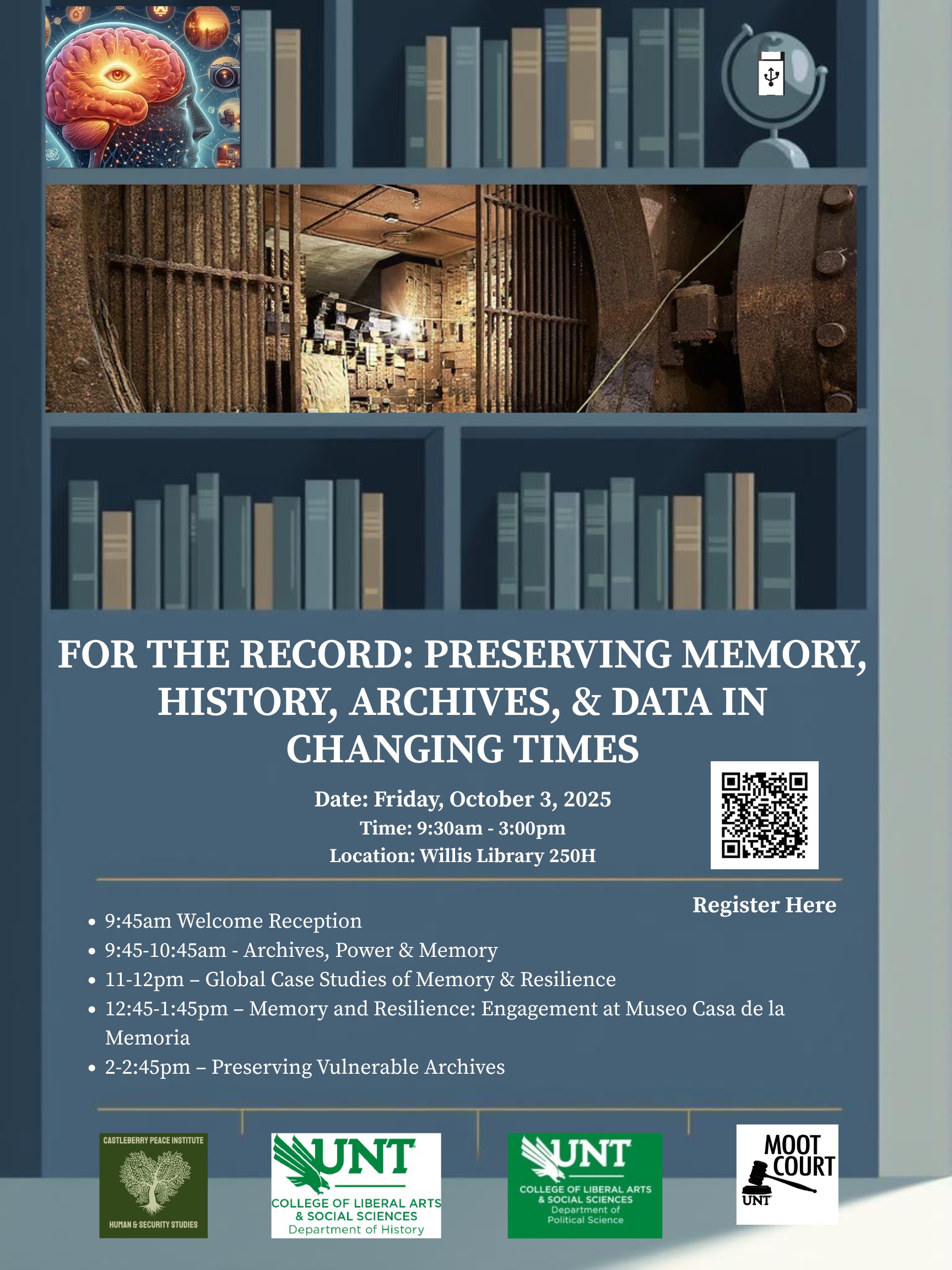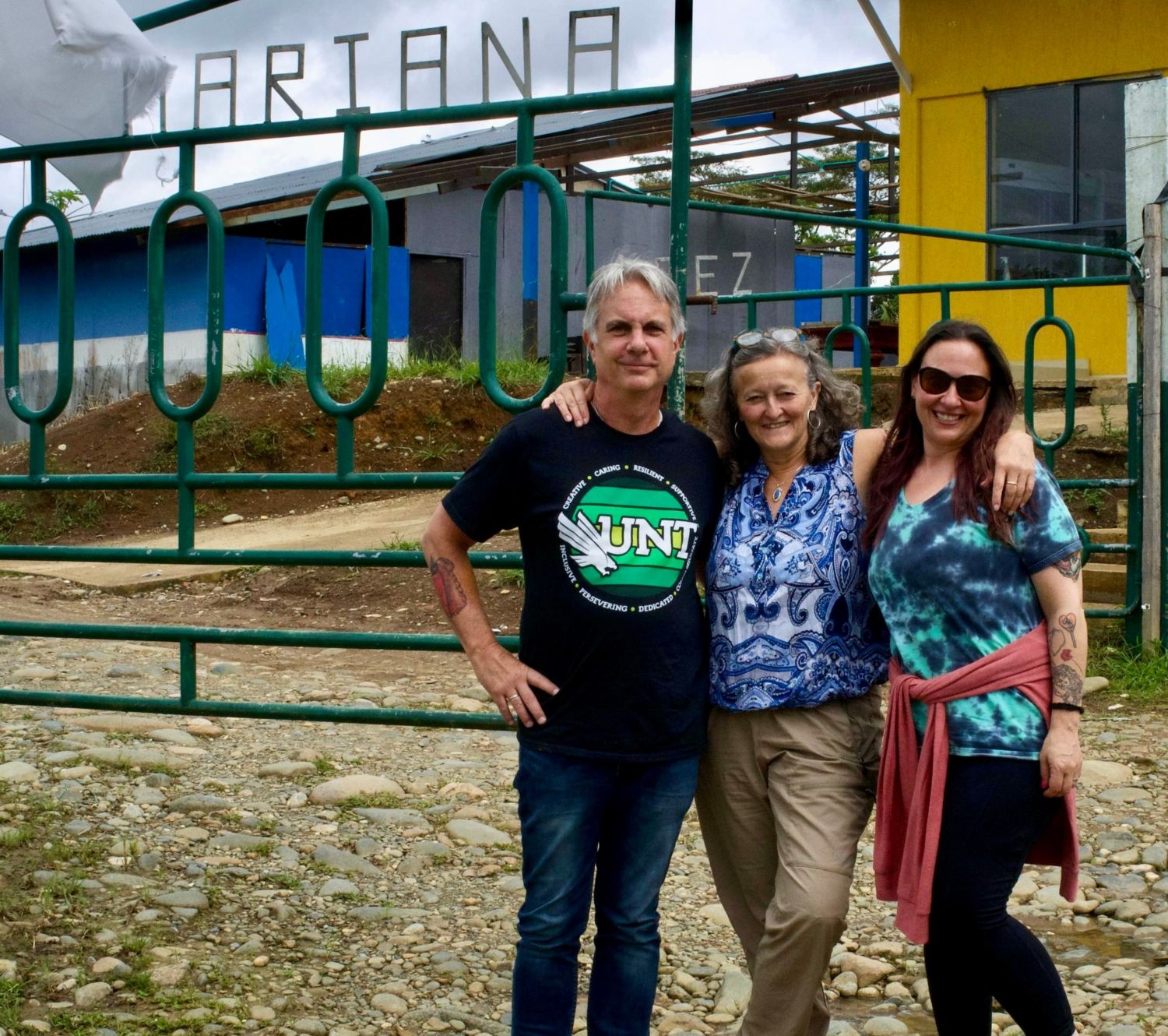On Friday, October 3rd, the University of North Texas will host an interdisciplinary conference titled “For the Record: Preserving Memory, History, Archives, & Data in Changing Times.” Scheduled from 9:30 a.m. to 3:00 p.m. in Willis Library, Room 250H, this event is jointly sponsored by UNT’s Castleberry Peace Institute and the Department of Political Science. Bringing together academics, archivists, and community stakeholders, the conference highlights the urgent need to safeguard collective memory in a rapidly changing world.

According to the event’s description, the conference responds to “an era of socio-political transition, national and global conflict, and unprecedented economic turbulence,” in which communities struggle to protect vital information, archives, and identity narratives. These challenges extend beyond traditional records to include oral histories, languages, and digital data that risk being lost or distorted over time. By framing these issues as both academic and practical, “For the Record” underscores the critical role of preservation in sustaining democracy, culture, and human rights.

The conference aims to unite scholars, practitioners, archivists, and stakeholders in dialogue about research, methodologies, strategies, and projects that safeguard memory and information. Participants will explore innovative approaches to documentation, data protection, and the ethical dimensions of preservation in volatile times. This collaboration seeks to generate new ideas and share best practices that can strengthen institutions and communities facing these challenges.
UNT is the perfect place to host this conference, because “its department of political science is nationally ranked for its research; our faculty have won a tremendous number of teaching awards because we integrate research and education together.” Dr. Kimi King, a distinguished teaching professor of political science, constitutional law, and international law, explains, “We have been working with partners from the almost 6-decade long war in Colombia since 2016. We have had multiple projects over the years and continue to work with students annually on research projects that contribute to transitional justice in Colombia.”
The panelists seek to inspire students and the younger generation to find their part in the interdisciplinary effort to safeguard information. “We need them,” Dr. DeMeritt explained, “These problems don’t go away and we can’t live forever… But institutions live longer than people… The victims are younger, so we need the community’s peers to engage with them.” Dr. Jacquelin DeMeritt is a scholar and activist in human rights, extrajudicial killing, and reconciliation processes working as a distinguished professor for UNT’s Department of Political Science.
If communities could take one simple action to safeguard their memory today, Dr. DeMeritt extends this advice, “[while it may be] simple, [its] not easy… agree what the core of the community is… It is easier to come back to that for peace, memory, and history. If your community is religious, save church relics… If the school is important, that community would save the books.”
The preservation of history and identity narratives is vital for communities in times of instability. “In terms of preventing future conflicts, you have a little less than one-in-two chance of slipping back into Civil War after you have achieved peace in a country,” says Dr. King. “What contributes to the lasting peace is a debate among political scientists. Within that debate, we use facts, data, statistics, narratives, and collective identities to better understand what caused the conflict and how we can keep from conflict recurring. In some ways, there really is never any peace, there is only the prevention or minimizing conflict of violence.”

Readers can follow upcoming programs from the Castleberry Peace Institute and the Department of Political Science to stay engaged with these efforts, visit castleberry.unt.edu or our Instagram @CastleberryPeace for more details.